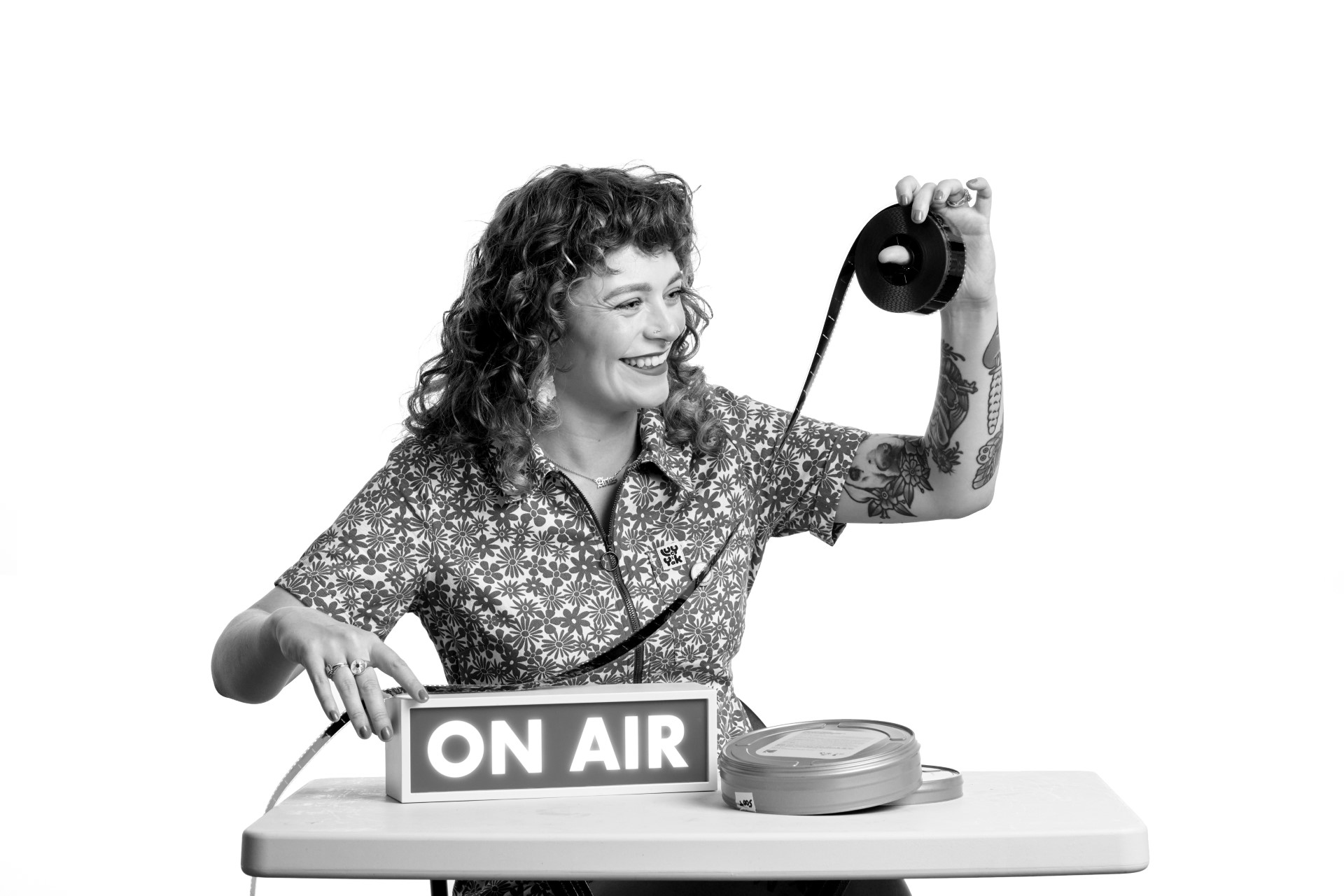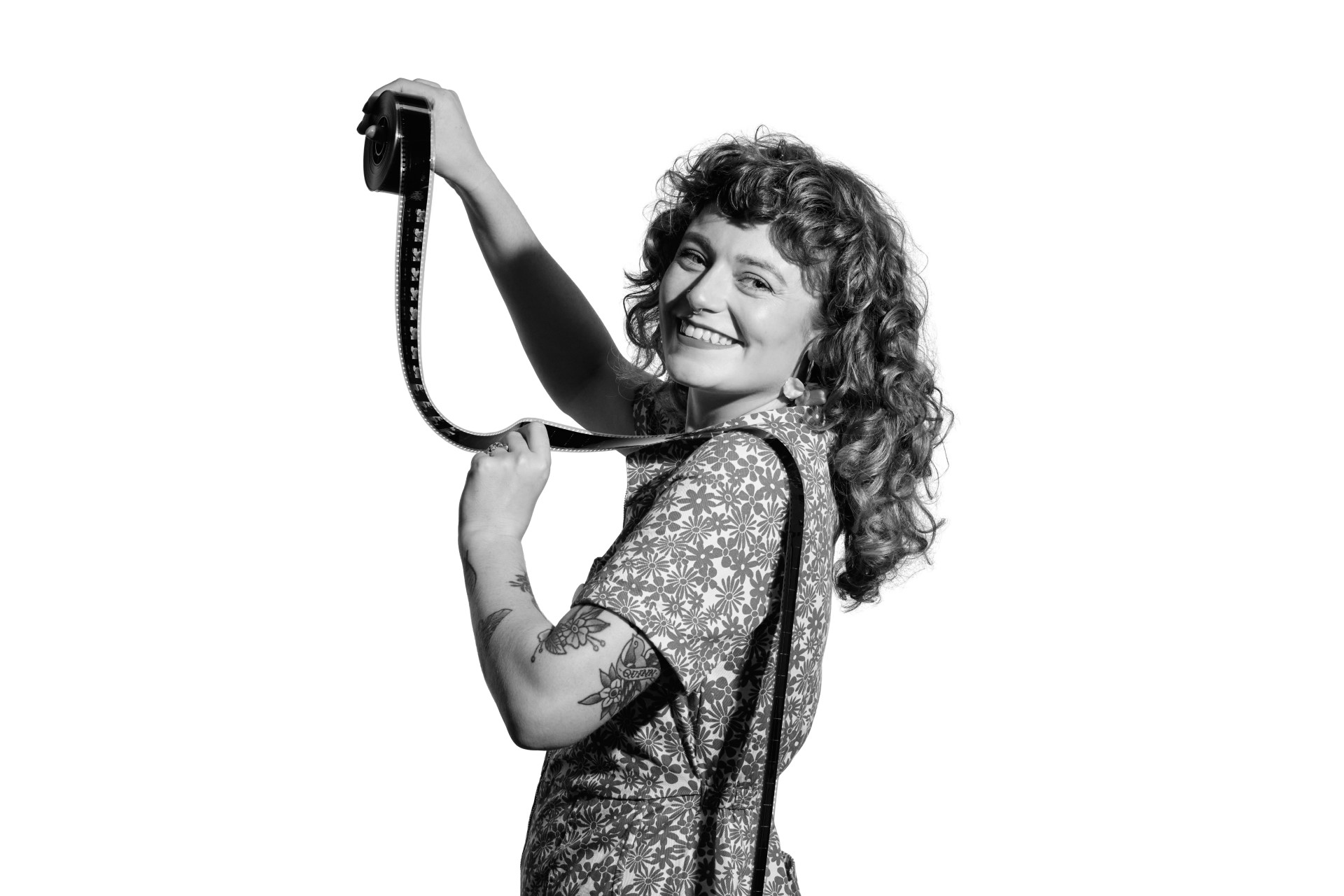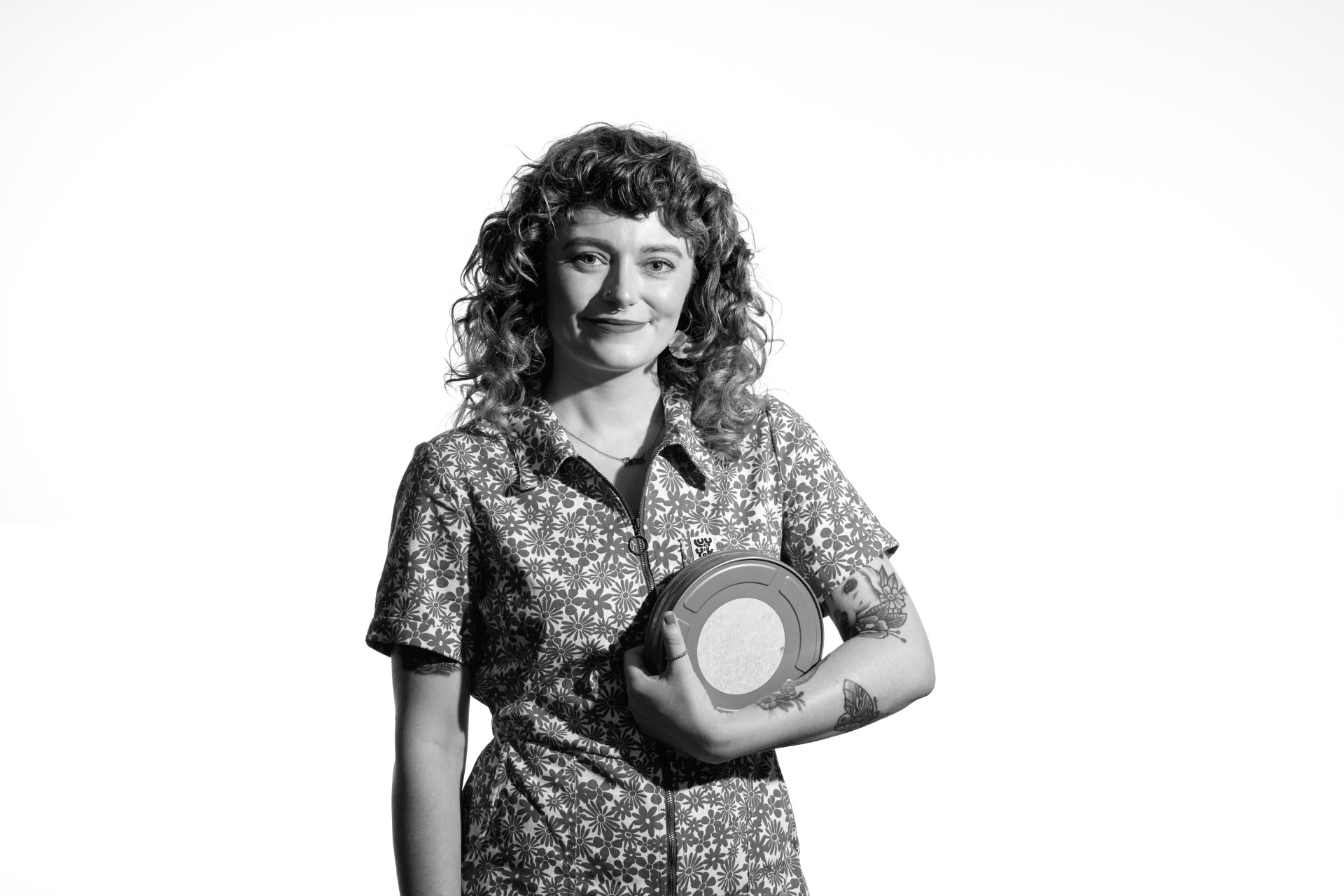Meet Lauren: a film editor who has ADHD
Posted on by Henny Swan in User experience
Meet Lauren, a film editor moving into the world of producing and production management who has ADHD (Attention Deficit Hyperactivity Disorder).
Lauren shares what helps her stay focused when browsing the web and why white backgrounds and autoplaying video are not helpful for her.
If you haven't already:
- Meet Andre: a music producer and blind screen reader user
- Meet Hasmukh: a blind cricketer and screen reader user
- Meet Jonathan: a photographer who has ADHD
- Meet Josh: a sportsman Meet Josh: a sportsman who has Spinal Muscular Atrophy
- Meet Steve: a photographer who is deaf and low vision
Tell us about yourself
I'm Lauren, I am an early career film editor moving into the world of producing and production management. My interests broadly include 70s and 80s horror films and moody music. I never grew out of my goth phase! I also really enjoy making jewellery in my spare time.

In terms of assistive technologies, I find text-to-speech features really useful. I have ADHD, and I find it helpful to be able to walk around and listen to the content of a page. Moving helps me stay focused as I often lose focus quite quickly when sitting still and reading! So if I am working with a client and need to read a contract for example, I would rather listen to this large body of text than read it.
What barriers have you experienced using the web?
When web pages contain large blocks of text, it can be really overwhelming to try and sift through this visual information and stay engaged and receptive to the content I'm trying to read.
This happened recently on a blog post I was trying to read, and I thought I would simply put this text into a speech generator, so I could listen to it instead. It turns out that this text was embedded into an image on the page of the website, rather than as native body copy, meaning I couldn't get my software to 'read' it. This was really disheartening because it's such a simple thing to overlook when it comes to designing a webpage and making sure the content is accessible.

Are there any websites you find especially accessible?
I can't name any particular ones off the top of my head, but it's always a relief when websites are properly optimised for both laptop and phone browser viewing. There's nothing worse than trying to navigate a website on a desktop which has clearly been only optimised for mobile or vice versa! It's very disorientating to try and navigate, as someone who struggles with spatial awareness and short-term memory.
As for short-term memory, I would liken it to entering a room and then forgetting why you went there - if I click on a link to navigate to a blog post for example, I find it really helpful if the title of the page is clearly displayed in the browser tab. If more websites displayed clear and concise page titles this would help me a lot!
Having a consistent website theme is very useful for me. For example, if a website lacks a clearly defined visual theme, navigating it can be challenging. If the 'help' link is in one position and colour on one page, and a different position or colour on another, it slows me down and often leads to frustration and disengagement. Consistent colour and style throughout are easier to read and more visually comfortable. Softer whites are also much easier to read than full white.
Limiting animations and autoplaying media is another big thing for me. I am immediately distracted and often overwhelmed by autoplaying videos with loud sound. It means I forget why I went to that page in the first place!
What features or improvements would you like to see on the web?
More text descriptions for images and more fully screen reader-friendly pages so I can listen to the content while walking around to keep me focused. Both of these accessibility improvements don't need to cost you your webpage design either! There can be parity between something visually striking and on brand, as well as being accessible to the broad variety of people who may encounter your website.

Next steps
Whether you're at the start of your accessibility journey or partway through it, our free six-day newsletter Accessibility Unlocked is designed to help you kick start accessibility.
We like to listen
Wherever you are in your accessibility journey, get in touch if you have a project or idea.